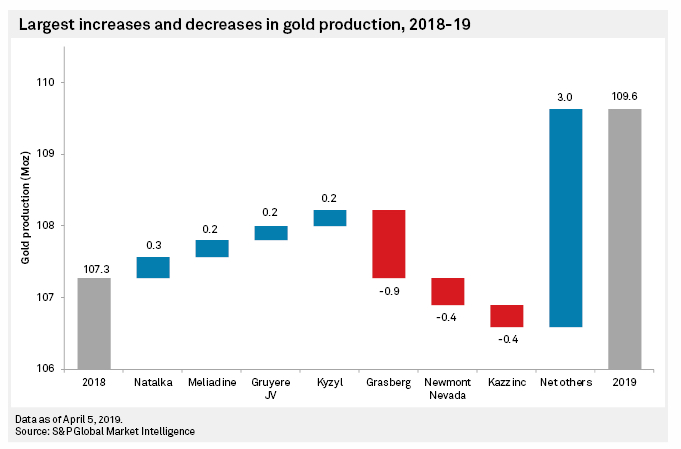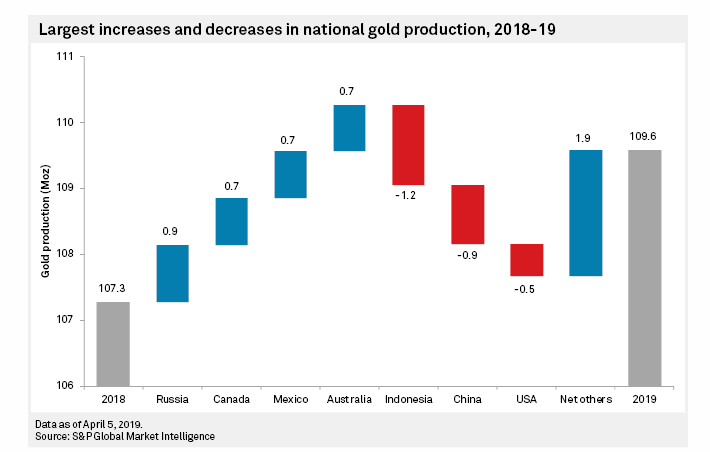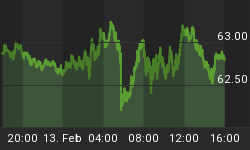The price of gold came under pressure on Tuesday ahead of a long weekend for North American markets, dropping to its lowest level yet in 2019. Gold for delivery in June fell to $1,275.50 per ounce in heavy volume of nearly 30m ounces traded as investors rotate money out of gold and into US stock markets, which are slowly creeping back into record territory.
Also weighing on sentiment is a new report by S&P Global Market Intelligence predicting that gold production worldwide is likely to set a fresh record in 2019 after a decade of growth in output.
Debunking peak gold

(Click to enlarge)
More than half of the additional output in 2019 will come from new mines expected to come on stream or from recently commissioned operations
Related: Chinese Appetite For Gold Approaching Record Levels
S&P forecasts a 2.3 million ounce increase in gold production to a total of 109.6 million ounces this year – the fastest pace of growth in three years – which researchers say “debunks commentary calling for so-called peak gold.”
The world’s gold mines now pour 40 percent more gold than in 2008 and S&P expects production to stay steady for the next two years. By 2022 output is likely to decline as falling production from depleted operations over the next several years start outpacing output at new or restarted mines “by as early as 2021.”
According to the report, more than 15 percent of gold production by 2024 will be coming from mines that are not yet producing. This year, more than half of the additional output will come from new mines expected to come on stream or from recently commissioned operations.
Agnico Eagle’s Meliadine mine in Nunavut will be the largest new producer in 2019, bringing an estimated 230koz of gold onto the market this year. Sigma-Lamaque in Quebec, owned by Eldorado Gold will add just over 83koz. Canada is likely to see a net increase of 2.7m ounces out to 2024.
The Gruyere joint venture in Western Australia between Gold Fields and Gold Road Resources is expected to start production early in the third quarter with a targeted output of 195koz. In contrast to Canada, Australia is predicted to lose 4.4m ounces of production over the next five years.

(Click to enlarge)
The world’s gold mines now pour 40 percent more gold than in 2008.
Related: Is The Corporate Debt Bubble About To Pop?
Restarted operations at AngloGold Ashanti’s Obuasi mine in Ghana are expected to produce 136.6koz in 2019 while Equinox Gold’s Aurizona mine in Brazil will add 95koz. Both mines were put on care and maintenance in 2015.
Russian power play
Ramp up at Natalka in Russia operated by Polyus will result in 300koz of additional production, providing a third of the 900koz the country will add this year alone. Full-scale operations at Natalka were restarted in January 2017 and the property in the east of the country boasts 16m ounces of reserves.
Moscow-based Polyus could make a decision on its Sukhoi Log project, located in the Irkutsk region of eastern Siberia, as early as next year. The deposit holds an estimated 58 million ounces and Polyus says Sukhoi Log could sustain average annual output of 1.6m ounces if and when it goes into production.
By Mining.com

















